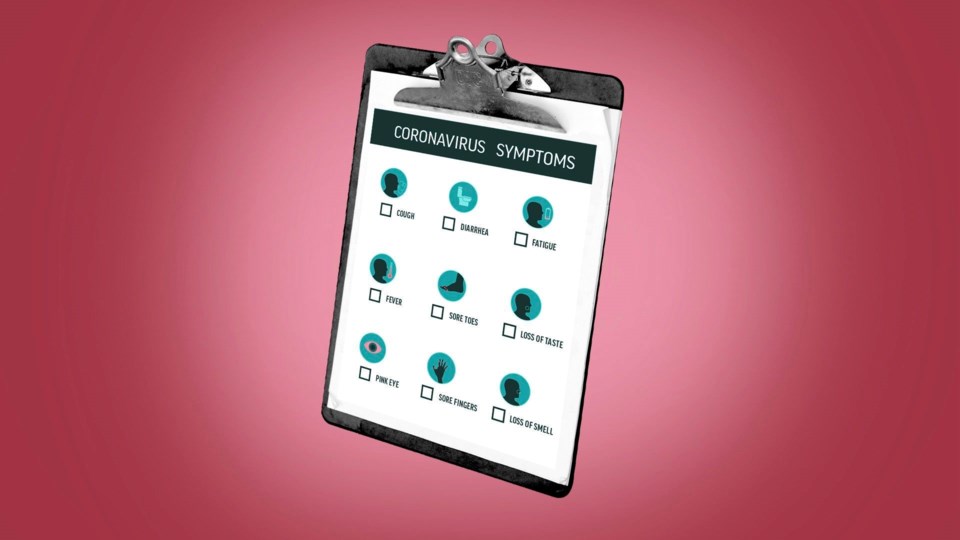What are the symptoms of COVID-19?
The most common symptoms of the coronavirus are fever, a dry cough, shortness of breath and fatigue. But as the virus spreads around the world, additional symptoms are being identified.
Those include loss of taste or smell, sore throat, pink eye, vomiting and diarrhea.
Most recently, doctors have reported a variety of skin problems, including red, sore and itchy swelling on the fingers or toes, a symptom dubbed “ COVID toes.”
Compared with the flu or a common cold, COVID-19 symptoms may appear more slowly — between two and 14 days after exposure.
Some people never feel sick or notice any symptoms, even though they're infected and can still spread it to other people.
For mild symptoms, like a slight cough or a mild rash, health experts say you may not need to rush to the emergency room. They recommend self-isolating and monitoring your symptoms to see if they become more severe.
Anyone experiencing difficulty breathing or pain or pressure in the chest should seek immediate emergency medical care.
___
The AP is answering your questions about the coronavirus in this series. Submit them at: [email protected].
The Associated Press



